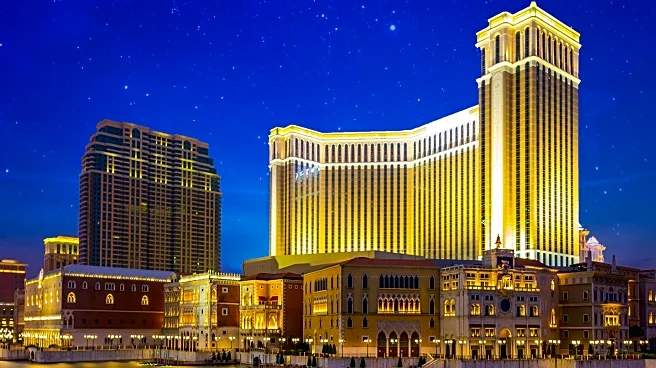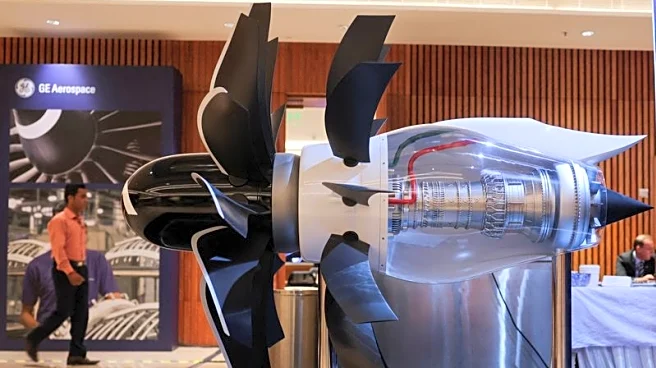What's Happening?
Luxury hospitality is evolving to meet the changing expectations of high-net-worth travelers who are increasingly seeking spontaneous, short-term luxury experiences. These travelers are embracing last-minute escapes that offer immersive local experiences without
extensive planning. Hotels are responding by offering curated local immersion programs, such as art walks, culinary tours, and guided history routes, which can be tailored to fit into a guest's schedule, whether they have one hour or an entire day. Additionally, purpose-driven travel is gaining traction, with guests drawn to opportunities that make a positive impact through community-based tourism and conservation projects. The trend also includes wellness-focused journeys, with hotels integrating wellness into every stage of the guest experience, from sleep-focused environments to sophisticated non-alcoholic beverage options.
Why It's Important?
The shift towards urban microadventure tourism reflects broader changes in the luxury hospitality industry, where personalization, flexibility, and purpose-driven experiences are becoming key differentiators. This trend is significant for the U.S. hospitality sector as it aligns with the growing demand for meaningful travel experiences that resonate with guests' values and lifestyles. By offering these tailored experiences, hotels can attract high-net-worth travelers who prioritize emotional connection and cultural authenticity. This approach not only enhances guest satisfaction but also supports local economies and ecosystems through sustainable practices and community engagement. As travelers increasingly seek experiences that offer both luxury and impact, hotels that adapt to these preferences may gain a competitive edge in the market.
What's Next?
Hotels are likely to continue expanding their offerings to include more personalized and purpose-driven experiences. This could involve deeper collaborations with local artists, chefs, and historians to provide guests with intimate, story-driven experiences that go beyond traditional sightseeing. Additionally, the integration of technology, such as artificial intelligence, may further enhance personalization by anticipating guest needs and preferences. As the trend towards urban microadventure tourism grows, hotels may also focus on sustainability, incorporating eco-conscious design and urban agriculture into their operations. These developments could lead to a more immersive and culturally rich hospitality experience that appeals to modern luxury travelers.
Beyond the Headlines
The rise of urban microadventure tourism in luxury hospitality may have broader implications for cultural and environmental sustainability. By promoting local immersion and purpose-driven travel, hotels can play a role in preserving cultural heritage and supporting local communities. This approach encourages travelers to engage with destinations in a more meaningful way, fostering a deeper appreciation for diverse cultures and traditions. Additionally, the emphasis on sustainability and wellness reflects a growing awareness of the environmental impact of travel, prompting hotels to adopt practices that reduce their carbon footprint and promote responsible tourism.
















